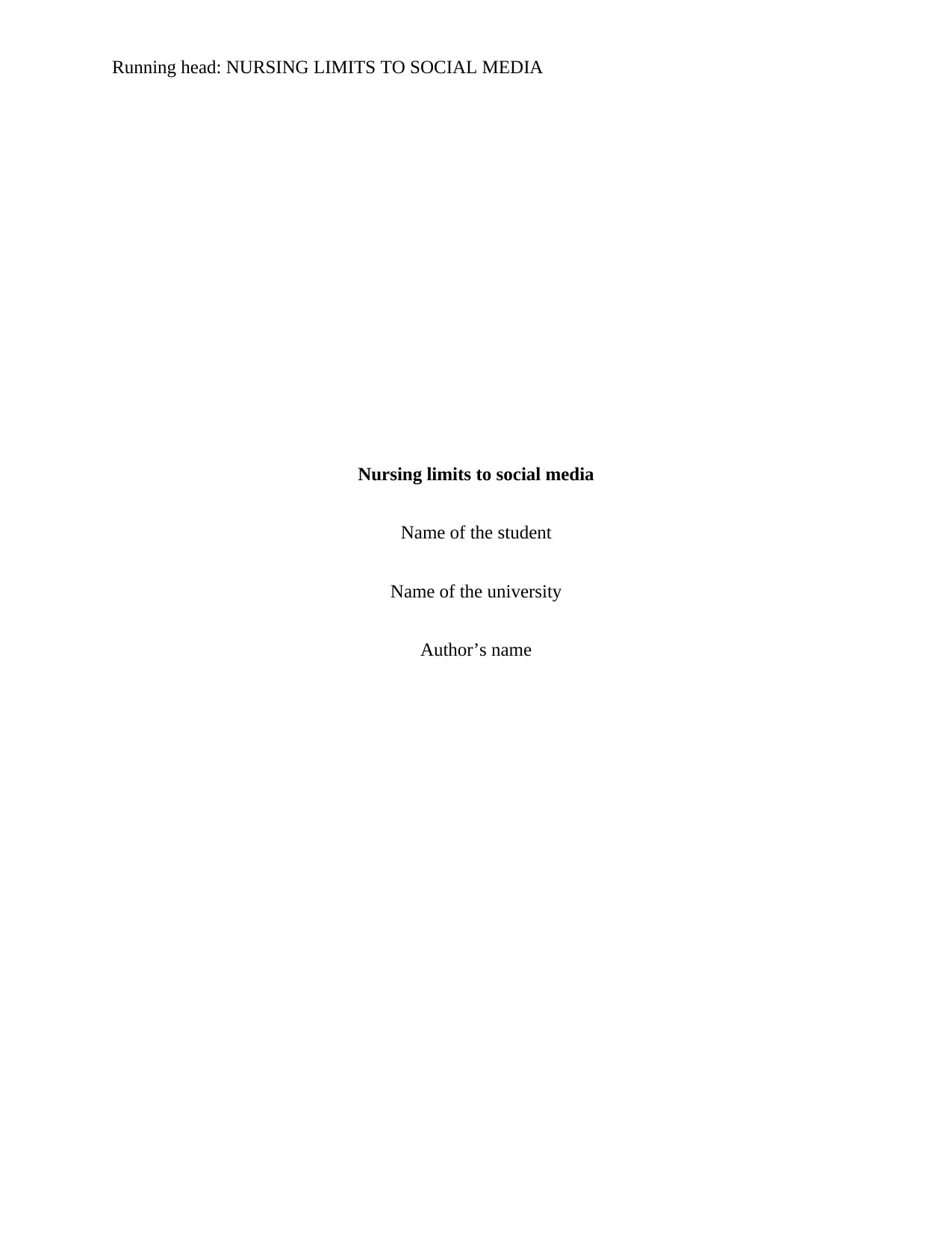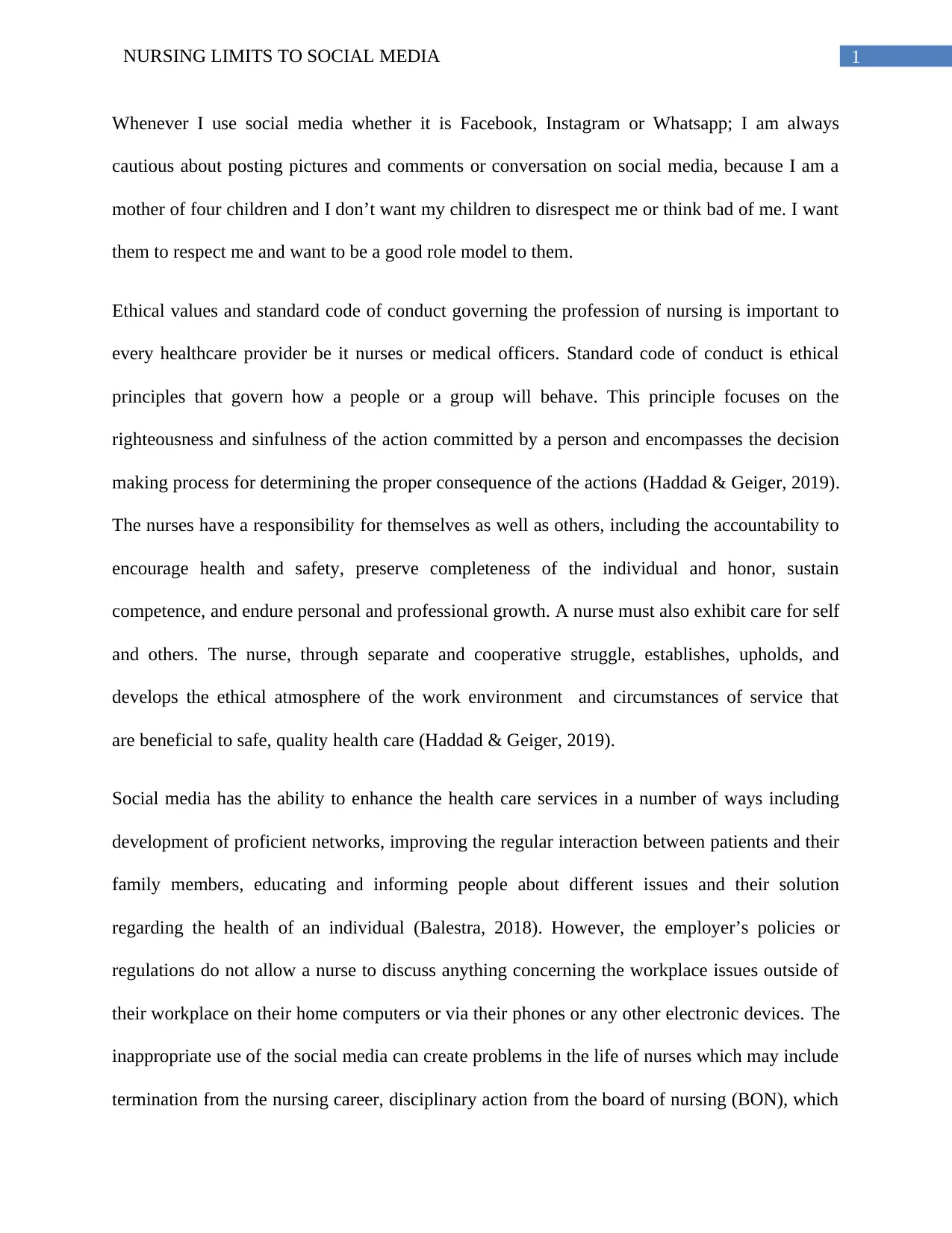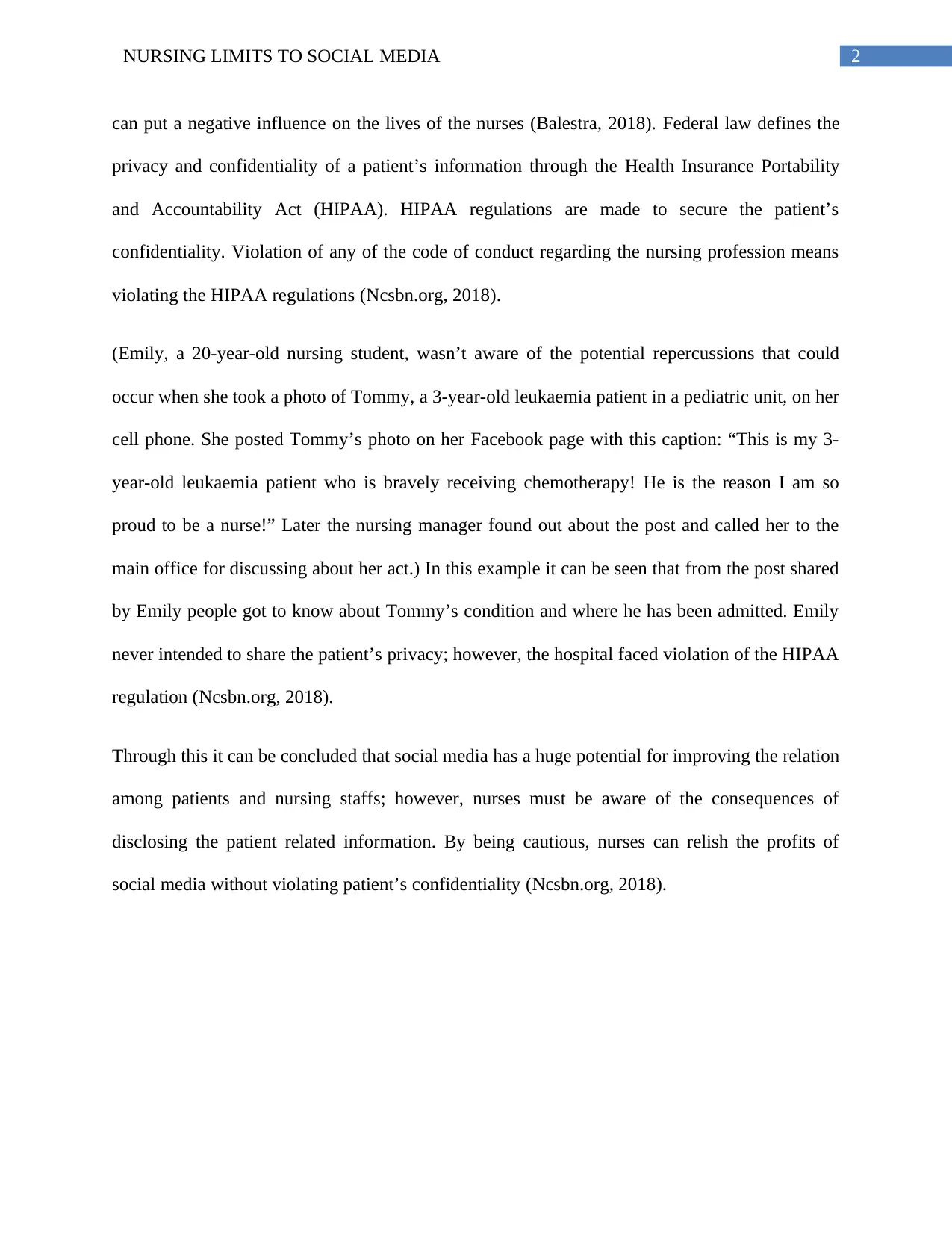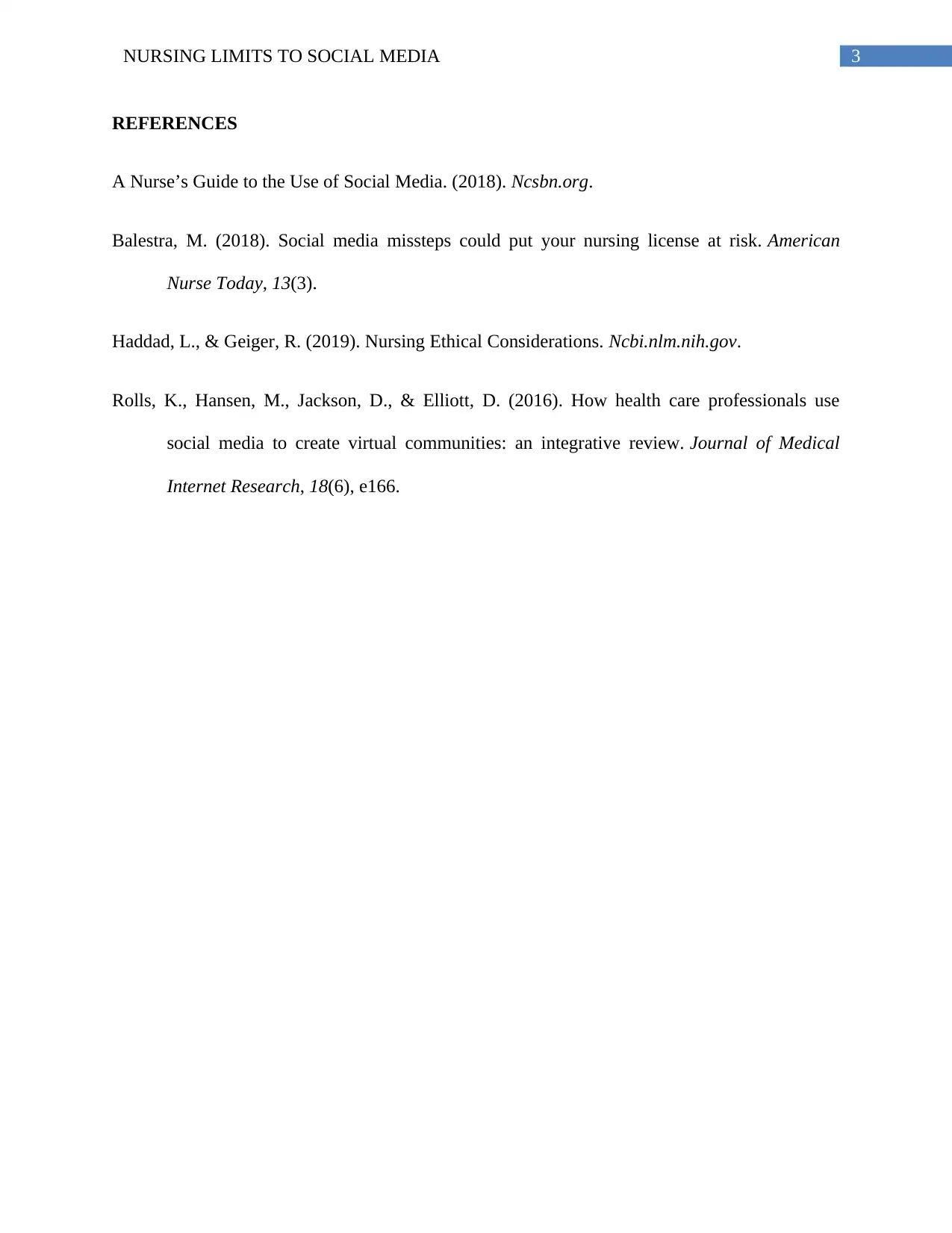Social Media's Impact on Nursing: Ethical Considerations and Limits
VerifiedAdded on 2022/10/15
|4
|826
|16
Essay
AI Summary
This essay examines the ethical considerations of social media use within the nursing profession. It explores the potential benefits of social media in healthcare, such as improved communication and networking, but emphasizes the critical importance of adhering to ethical guidelines and legal regulations. The essay highlights the Health Insurance Portability and Accountability Act (HIPAA) and the significance of patient confidentiality. It presents a case study involving a nursing student's misuse of social media, illustrating the potential consequences of violating patient privacy. The essay underscores the need for nurses to be cautious and informed about the risks associated with social media, advocating for responsible online behavior to protect patient information and maintain professional integrity. The essay references several scholarly articles and resources to support its arguments, including the guidelines provided by NCSBN and other publications that discuss the use of social media by healthcare professionals.
1 out of 4











![[object Object]](/_next/static/media/star-bottom.7253800d.svg)